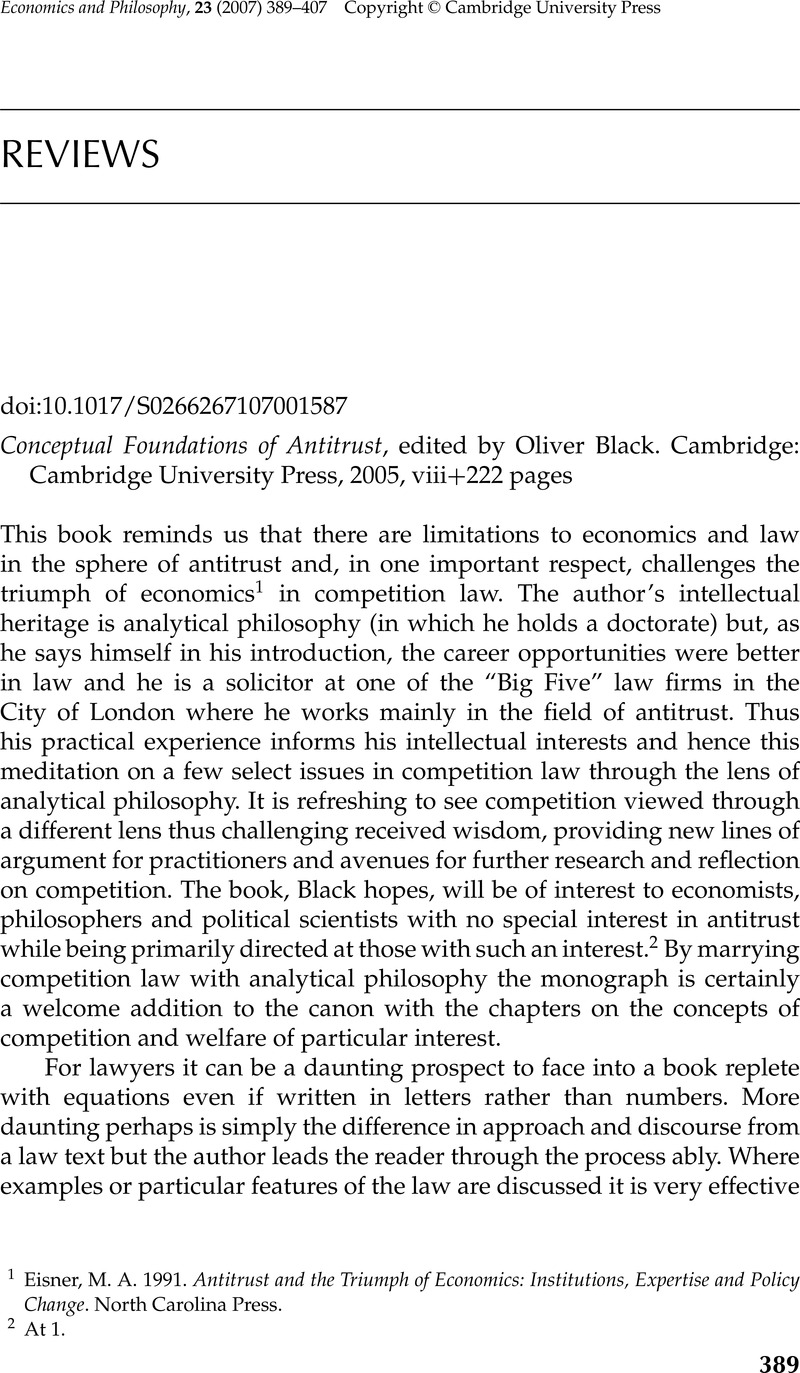No CrossRef data available.
Article contents
Conceptual Foundations of Antitrust, edited by Oliver Black. Cambridge: Cambridge University Press, 2005, viii+222 pages
Published online by Cambridge University Press: 01 November 2007
Abstract

- Type
- Reviews
- Information
- Copyright
- Copyright © Cambridge University Press 2007
References
1 Eisner, M. A. 1991. Antitrust and the Triumph of Economics: Institutions, Expertise and Policy Change. North Carolina Press.Google Scholar
2 At 1.
3 At 161.
4 At 5.
5 See Jones, A. and Sufrin, B.. 2004. EC Competition Law: Text, Cases and Materials, 2nd edn.Oxford University Press, 182–6.Google Scholar
6 Black at page 33 notes that EC and US antitrust favours consumer welfare while economists favour social welfare.
7 Peritz, R. J. R. 2000. Competition Policy in America: History, Rhetoric, Law. Oxford University Press.Google Scholar
8 At 33.
9 Audretsch, D. B., Baumol, W. J. and Burke, A. E. 2001. Competition policy in dynamic markets. International Journal of Industrial Organization 19: 613–34.CrossRefGoogle Scholar
10 Maher, I. 2004. Regulating competition. In Regulating Law, Parker, C., Braithwaite, J., Scott, C. and Lacey, N., eds. Oxford University Press, 197.Google Scholar
11 See e.g. Commission Notice on Market Definition [1997] Official Journal C 372/5; [1998] 4 Common Market Law Reports 177.
12 Members of the Australian Competition Tribunal can include an economist, see section 31(2) Trade Practices Act 1974. An economist may sit as a lay member of the High Court in New Zealand when it is considering competition law matters, see section 77 Commerce Act 1986.
13 See e.g., section 4 of the Irish Competition Act 1996.
14 The other being that an effective competitor may over time achieve monopoly.
15 At 6.
16 At 26.
17 “[a] form of coordination between undertakings which, without having reached the stage where an agreement properly so-called has been concluded, knowingly substitutes practical cooperation between them for the risks of competition” the European Court of Justice in cases 48/69 etc ICI v. Commission [1972] European Court Reports 619, [1972] Common Market Law Reports 557, paragraph 64.
18 At 185.
19 Case T-342/99 Airtours plc c. Commission [2002] European Court Reports II-2585, [2002] 5 Common Market Law Reports 176.


